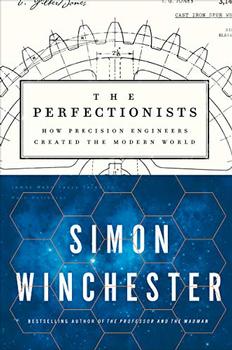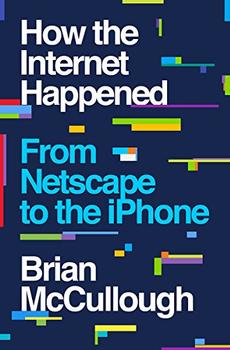Summary | Excerpt | Reviews | Beyond the book | Read-Alikes | Genres & Themes | Author Bio

How Refrigeration Changed the World and Might Do So Again
by Tom JacksonGrowing up in Mumbai in the '70s, I still remember herbs kept fresh in small glasses of water, and shopping for vegetables practically everyday. When a refrigerator (along with the television) finally made its way into our cozy apartment, we knew we had finally climbed that last rung to middle-class respectability. Our early model was a mean old beast regularly doling out nasty 220V electric shocks — apparently it hadn't occurred to my parents or the electrician that grounding an appliance might be a thing. I finally resorted to using a wooden rolling pin to open the fridge door. Memories of that old avocado-colored curmudgeon surfaced when I read the delightful Chilled: How Refrigeration Changed the World and Might Do So Again.
While the desire for a refreshing cold has been around for millennia, the path to refrigeration was long and beset by many detours. It isn't surprising that the concept of chilling things took root in the Middle East; the ancient Persians devised elaborating cooling systems based on the principle of evaporation (see Beyond the Book).
Before today's basic refrigerator could ever be born though, scientists had to tease apart the meaning of temperature, find a standard way to measure it, discover what it takes for water to freeze, and how ice melts. Jackson takes his time setting up the show – he explains one of chemistry's most basic laws, (Boyle's Law), as well as the essence of thermodynamics, the driver behind the contemporary refrigerator. There is a lot of science here that might deter the novice, which would be a shame because Jackson makes the material readily understandable and, equally important, very enjoyable.
On the way to the refrigerator of today were early clunky and inefficient (and even downright dangerous) models. The extremely flammable ammonia was used as refrigerant, leading to a reluctance in adoption of the mechanical contraption, especially when the natural ice industry was flourishing — after all, one enterprising New Englander had kickstarted a global trade in ice (see The Frozen Water Trade), figuring how to make a commodity out of an item that nature supplied in abundance all winter long. The death knell for harvested ice, Jackson writes, was sounded only when it became apparent that the water could be a deadly vector for bacteria.
Even if it occasionally seems like Jackson gets swallowed in the thickets of the science he is looking to illuminate, the most impressive aspect of this lively romp through history is its strict adherence to its rather ambitious title. Jackson extrapolates refrigeration beyond the ubiquitous kitchen appliance to emphasize just how vital the process is — in applications from the MRI machine to superconductivity — and how it helped foster entire industries in its wake. "Housewives (for it was their refrigerator) were freed from buying foods every day and they were no longer compelled to slave away preserving perishables," Jackson writes. "That created a new opportunity for the food industry — why not sell families a kitchenful of food all at once? In other words, a supermarket."
"We do not consider that our kitchen fridge is the very tip of a chilled tendril, one of millions more that make up a network known in food industry circles as the cold chain," Jackson writes. "The cold chain, with its myriad nodes and branches, entangles the globe, creating a temperature-controlled transport corridor that connects the farmer's field and the trawler's hold to every grocery store chiller." All you really need to take a city down, he argues, is a loophole in its cold chain. Anybody who can't quite swallow that argument has never had their fridge break down just when it's needed most.
From the sands of ancient Persia to the refrigeration technologies of tomorrow, Chilled is a fact-filled ride sure to please the nerd in all of us. It's...er...a wicked cool story.
![]() This review was originally published in The BookBrowse Review in October 2015, and has been updated for the
October 2016 edition.
Click here to go to this issue.
This review was originally published in The BookBrowse Review in October 2015, and has been updated for the
October 2016 edition.
Click here to go to this issue.

If you liked Chilled, try these:

by Simon Winchester
Published 2019
The revered New York Times bestselling author traces the development of technology from the Industrial Age to the Digital Age to explore the single component crucial to advancement - precision - in a superb history that is both an homage and a warning for our future.

by Brian McCullough
Published 2018
Tech-guru Brian McCullough delivers a rollicking history of the internet, why it exploded, and how it changed everything.
Your guide toexceptional books
BookBrowse seeks out and recommends the best in contemporary fiction and nonfiction—books that not only engage and entertain but also deepen our understanding of ourselves and the world around us.